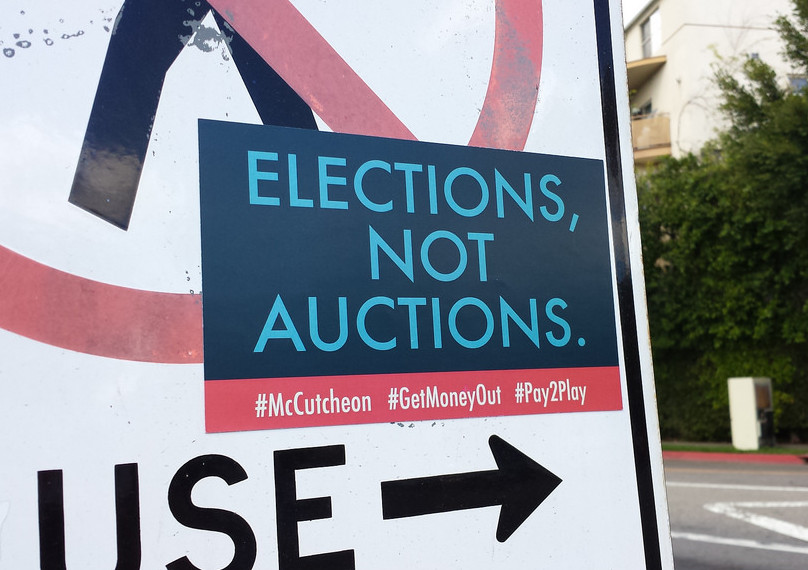A coalition last week filed citizens’ Initiative 122 in Seattle that assembles into a single package some of the toughest corruption prevention and clean-election laws found anywhere in the United States. It also adds one startlingly original feature: a campaign funding system called Democracy Vouchers, which gives every voter $100 of coupons to hand over to the candidates of their choice. The idea is so simple and revolutionary it might just start changing politics across Cascadia and beyond. If the coalition can gather about 30,000 signatures, which seems likely, the measure will appear on ballots in November. It stands a good chance of passing.
What’s in the initiative?
Honest Elections Seattle closes the revolving door: City elected officials and their top aides may not lobby their former colleagues for three years after leaving office.
Honest Elections Seattle tightens the cap on big money, lowering the limits per contributor down to $500. That’s among the lowest limits in the United States.
Honest Elections Seattle clamps down on secret money. It accelerates disclosure of financial contributions, moving toward real-time transparency for electronic contributions. It stiffens penalties for disclosure violations, and it cracks down on candidates raising money on the side for PACs and dark-money “independent expenditure” campaigns.
Honest Elections Seattle shuts off the cash circuit currently flowing between elected officials and the companies that lobby them. When it’s law, elected officials will no longer be allowed to take campaign money from companies that spend big on city hall lobbyists. It acts on the principle that elected officials shouldn’t take money from companies that have a financial stake in city decisions big enough to justify a lobbying line in their budgets.
Honest Elections Seattle also turns off the nozzle of contributions from companies that bid on and win big contracts with the city. It acts on the principle that elected officials shouldn’t take money from the firms that profit by doing business with the city.
Honest Elections Seattle makes campaign money more transparent than ever. It will speed up reporting of contributions to the Seattle Ethics and Elections Commission (SEEC). It will require candidates to disclose much more about their personal financial holdings and wealth, including their net worth, than ever before.
Honest Elections Seattle will call the bluff of faux-grassroots initiative peddlers. When a petition mercenary approaches a Seattle voter at the PCC with a clipboard, that voter will know right away—by reading a prominent badge—if he or she is facing a volunteer or a “PAID SIGNATURE GATHERER.”
And finally, the game changer: Honest Elections Seattle will give to every voter in the city Democracy Vouchers worth $100, which they can contribute to candidates who agree to play by the Honest Elections rules: no contributions from anyone of more than $250 ($500 for mayor), limits on total campaign spending, no fundraising for outside groups or campaigns, and penalties for benefiting from spending by outside campaigns. This voucher program will be much simpler than you might imagine, and it’s screamingly cheap. The City of Seattle’s budget is about $4.8 billion. Honest Elections Seattle costs under $3 million a year—about 0.065 percent of the budget.
Where we go from here
Signature gathering for Honest Elections Seattle citizens’ initiative will not commence until the City Clerk and City Attorney have finished processing the initiative, which will take a few weeks. That pause will give me time to write another article or two detailing how Democracy Vouchers work.
Full disclosure: I am far from neutral. I led the team of volunteers who designed the initiative and drafted its legal language. I also coordinated three rounds of peer review by Seattle coalition members and a network of constitutional lawyers and democracy reformers at national nonprofits such as the Brennan Center for Justice at NYU, the Campaign Legal Center, Every Voice, Public Citizen, and Represent.US (whose American Anti-Corruption Act was the single most influential model we drew from).
(The Honest Elections Seattle campaign website is published, though it is remains in development. Still, if you are interested, you can sign up for updates there.)


Comments are closed.